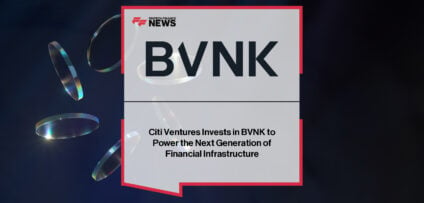Breaking News

Major fintech movements to start in Russia in 2019
The Russian economy has always been a very risky thing to deal with as the country’s foreign policy always poses a threat to its integrity.
In order to combat the multiple sanctions that the country is facing the government has decided to dedicate as much as $26 billion to the development of the digital economy by 2024.
But the question as to what segments of the Russian financial industry to be affected it yet to be known although we can get a general idea.
Digitalization against sanctions.
The overwhelming sanctions that the Russian economy was suffering for years turned out to be obsolete when oil prices started to grow in 2019 and the economy got back on its feet once again. All of this due to the major exports in natural gas and petroleum. But the question now is where Russia is planning to use its new fintech segment and what they are trying to target.
The FX market
Due to the sanctions, Russia’s exports have been taking massive hits over the course of several years, which has directly impacted the rubble. Although many think that cheap rubble is exactly what the Russian market needs it’s definitely not the case.
You see, Russia does not just stand there and take the sanctions on their exports. They also impose regulation on imported goods from markets such as the EU and even the US.
Because of this, the supply of local goods sometimes cannot keep up with the demand, therefore causing an increase in prices, and the rubble keeps on depreciating as exports get thinner and thinner.
This leaves the local economy in complete shambles as people can’t only not find decent products in their vicinity, but they can’t afford them either, especially all the imported goods as they’re valued in dollars, making it simply unattainable for some of the minimum-wage workers in Russia.
In order to combat inflation, it’s possible that the Russian government will somehow enhance its FX market to encourage more trading with the rubble.
Most of the licensed FX dealers in Russia are somehow connected to the government, and therefore will have a direct association with the national policy.
Judging how the Central Bank of Russia got rid of some offshore competitors to localize the industry a little bit more, indicates that they’re planning on introducing regulations that EU citizens simply cannot ignore. Note that the EU market is severely regulated to a point where churning a profit is impossible.
If it’s impossible for Russia to affect the rubble with cold hard cash, they’re going to do it digitally by introducing market-changing leverage or benefits for local traders.
Geographic orientation
Russia has recently partnered up with multiple jurisdictions to introduce large long-term projects in terms of global trade. Things like a new port in Egypt and the silk road project with China guarantees that the country will need to enhance their payment systems to better accomodate the international trading community.
Many are saying that the country may adopt the blockchain on a national level to facilitate faster transactions to streamline the process even further, but that comes into question after a Sberbank denied any connection with the technology.
The introduction of regulation could have hinted on the adoption, but it’s definitely not the case.
Overall, it’s expected that energy producing companies, as well as payment providers like Yandex, are going to spearhead the Russian fintech development into 2024. All that Russians need to hope for is that the country’s government does not get entangled in yet another diplomatic controversy.
- EXCLUSIVE: “Passion Project” – Brice van de Walle, Mastercard in ‘The Fintech Magazine’ Read more
- FreedomPay Drives Global Merchant Innovation Read more
- FIS Brings AI-Powered Advancements to Seamless, Personalized Digital Banking Experiences Read more
- Citi Ventures Invests in BVNK to Power the Next Generation of Financial Infrastructure Read more
- Nearly Two-Thirds of Global Retailers Say Payment Method Flexibility Drives Revenue Growth, ACI Worldwide Survey Finds Read more














